Best Online Savings Accounts Of 2024
Make your money work for you. It's free, fast & easy!
Grow your savings with high APY accounts.
Best High-Yield Savings Accounts - Maximize Your Savings
A savings account is a strategic financial tool, not just a place to stash your cash. Offered by banks and credit unions, these accounts allow you to store money securely while earning interest. The interest is generated as institutions use your deposits for loans and investments. With federal insurance backing, savings accounts provide a low-risk avenue for growing your money, making them an essential part of any financial strategy.
In 2024, saving money means more than just securing your funds - it’s about achieving exceptional growth. The best savings accounts now offer impressive Annual Percentage Yields (APYs) that surpass traditional rates, transforming your savings strategy.
These top-tier accounts combine high APYs with user-friendly features like low fees, easy access, and unmatched flexibility. They’re designed to fit seamlessly into your lifestyle while maximizing your financial potential. Join us as we explore the premier high-yield savings accounts of 2024, and take a significant step toward realizing your financial aspirations.
Understanding key terms associated with savings accounts is essential for making informed financial decisions. Here are some crucial terms:
Interest: The amount paid by the bank for keeping your money in a savings account, usually a percentage of your balance. Rates can be fixed or variable.
Compound Interest: Interest earned on both the initial deposit and previously accumulated interest. This significantly increases your earnings over time.
Annual Percentage Yield (APY): A measure of your potential earnings that includes the frequency of compounding interest, providing a more accurate estimate than the simple interest rate.
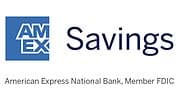
Member FDIC
APY
With $1 min balance for APY
No minimum balance and no monthly fees.
at American Express Bank

Member FDIC
APY
With $0 min balance for APY
Earn up to $300 with direct deposit, terms apply.
at SoFi Bank

Member FDIC
APY
With $0 min balance for APY
An award-winning account with great rates.
at Barclays
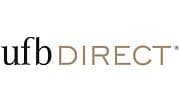
Member FDIC
APY
With $0 min balance for APY
No Monthly Maintenance Fees.
at UFB Direct
Operating a savings account is straightforward. After opening one at a bank or credit union, you can deposit funds and start earning interest.
You can generally contribute to your savings using one or more of these methods:
Interest rates may vary by bank. The APY, which considers compound interest, reflects your annual earnings. For example, a $1,000 deposit with a 1.00% APY and monthly $100 deposits would grow to $2,217 in a year.
Online savings accounts often offer higher rates than the national average, with some providing APYs as high as 5%, compared to the average of 0.57%.
How Much APY Does the Bank Offer?
Higher APYs, ideally around 5%, provide better returns than the national average of 0.57%. A 5% APY on $10,000 yields $500 annually, compared to just $40 from a 0.40% APY.
Why Should I Care About Getting a Separate Account for My Savings?
High-yield savings accounts maximize your interest earnings compared to checking accounts. They are ideal for emergency funds and savings without incurring monthly fees.
How Often Do Interest Rates Change?
APYs typically remain stable for months but can change based on market conditions and Federal Reserve actions. Regularly check rates to ensure the best return.
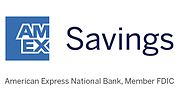
Additional Benefits:

Additional Benefits:
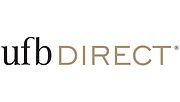
Additional Benefits:

Additional Benefits:
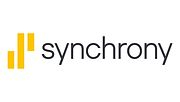
Additional Benefits:
Opening a savings account offers several advantages, starting with generating interest on your money passively. While interest earned is taxable, it provides a steady growth avenue without extra effort.
Savings accounts provide liquidity and simplicity compared to other methods like CDs, which require time commitments. CDs often yield higher APYs but restrict access until maturity. In contrast, savings accounts allow up to six monthly withdrawals without penalties.
Savings accounts are secure, offering federal insurance (up to $250,000 per depositor) through the NCUA or FDIC, safeguarding your money even if the bank fails.
The best savings accounts offer high APYs, security, and convenience, making them ideal for growing your savings. Top options like American Express National Bank, Synchrony Bank, Marcus by Goldman Sachs, SoFi, and Capital One 360 provide competitive rates, no monthly fees, and federal insurance.
These accounts offer easy accessibility, vast ATM networks, and robust customer support, suitable for both short-term and long-term goals. Staying informed about interest rate changes is crucial to maximize your financial growth with these high-yield savings accounts.
5 Tips for Discovering the Best Savings Accounts with Online Finance
Interest rates for savings accounts can fluctuate, but a wide range of rates is always available. While some may end up with lower rates, there are ways to ensure you stay closer to the higher end. Here are 5 user-friendly tips to become a more savvy saver.
Frequently Asked Questions (FAQs)
Most savings accounts have no monthly fees. As your money accrues interest, your balance may increase after depositing.
Yes, as long as the National Credit Union Administration or the Federal Deposit Insurance Corporation protects your funds.
Yes, interest earned on savings accounts is taxed. If you made more than $10 in income during the tax year, you will likely receive a form from your provider disclosing it. A high-yield savings account will probably offer more interest.
You can store money you don’t need for everyday expenses in a savings account. It might be an excellent place to save money for emergencies or money you’re saving for a particular purchase, such as a down payment on a home or a trip. The quantity of money you should keep in your savings account varies based on your circumstances because everyone has various savings goals. In contrast to most checking accounts, savings pay interest - money you get in your account for just maintaining it with the bank. Your savings account balance will increase more quickly the more significant the interest rate.
In conclusion, online banking offers several benefits, Banks such as American Express, Chase, Capital One, US Bank & Marcus by Goldman Sachs make it a superior option to traditional banking. With lower fees, higher interest rates, ease of access through ATM connections, better customer service, and a more comprehensive range of products, online banking has become the preferred choice for many. The FDIC insures online banks, and they have security measures to ensure your funds are secure. By being vigilant with password protection and avoiding public Wi-Fi access, online banking can be a convenient and safe way to manage your finances. So, you’re looking for a better banking experience. In that case, consider switching to online banking today and opening a high-interest savings account online.